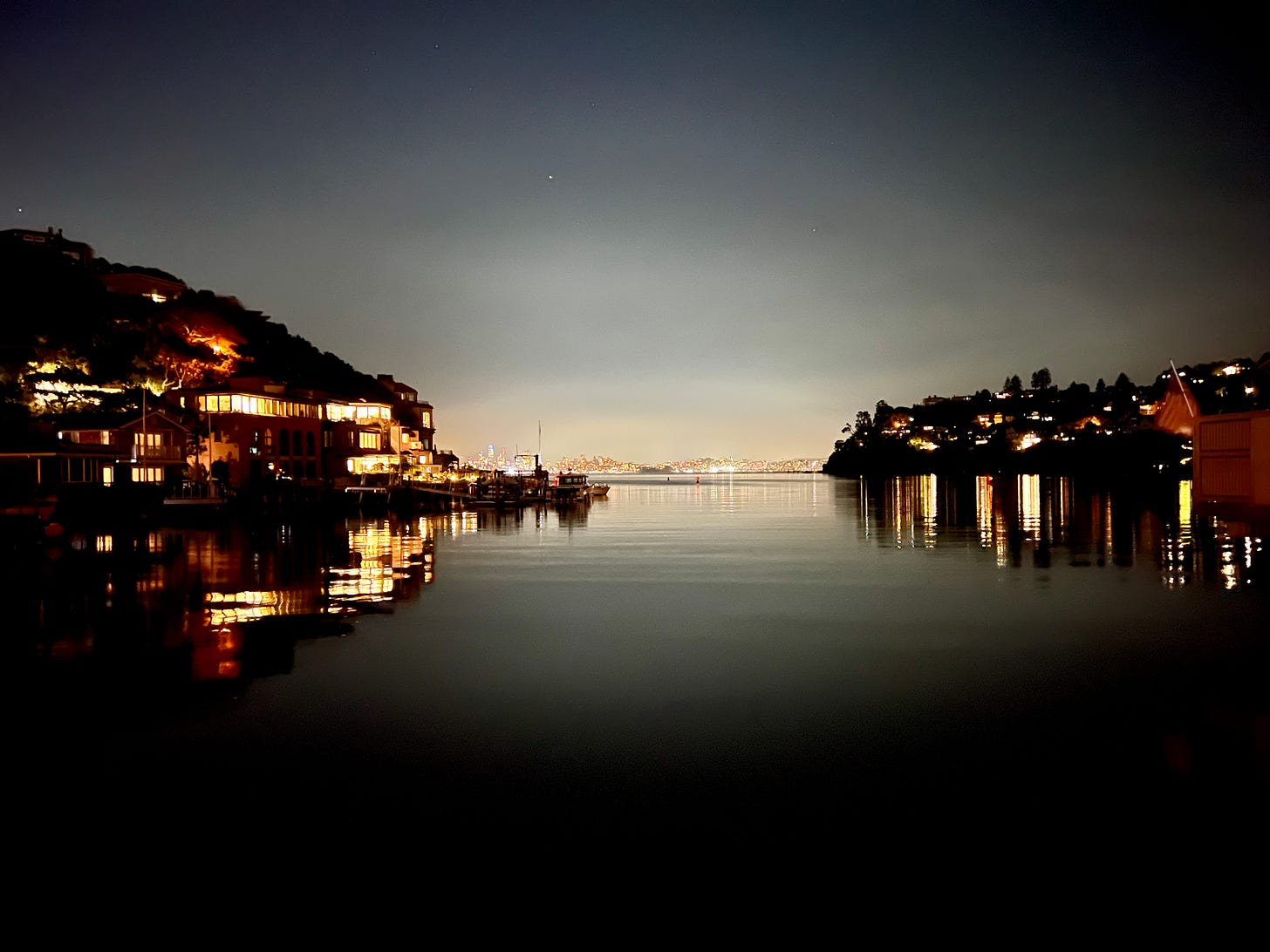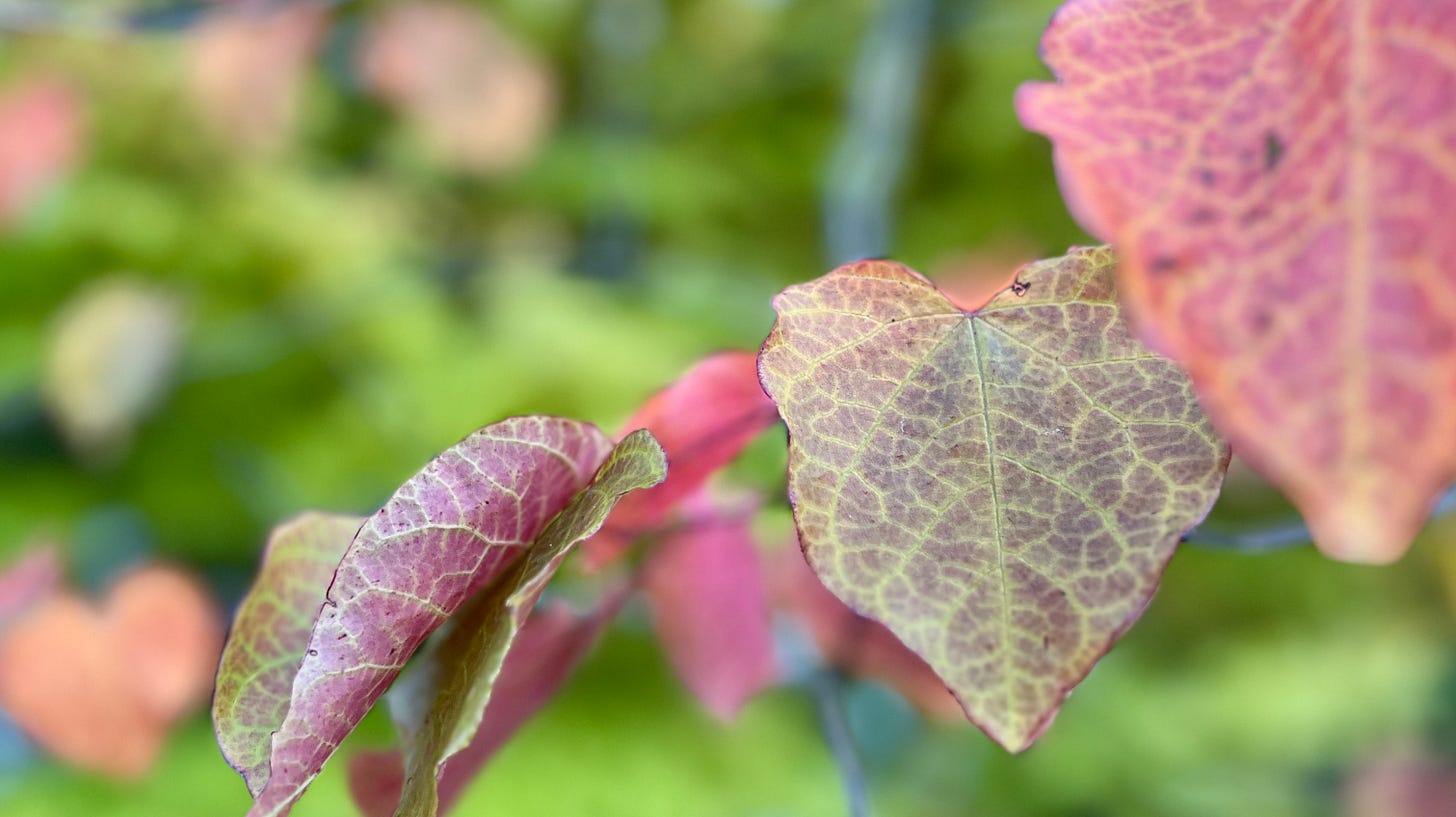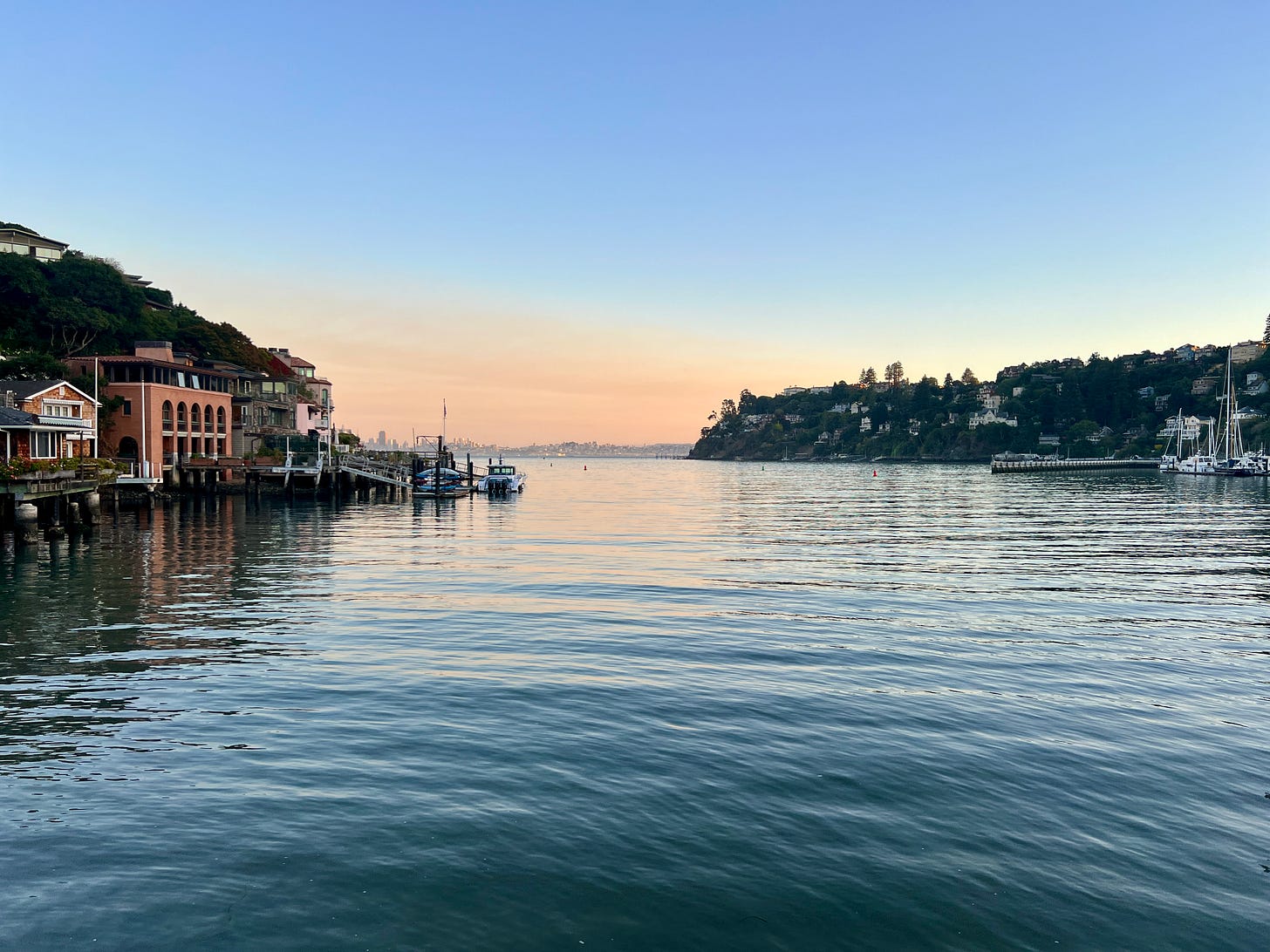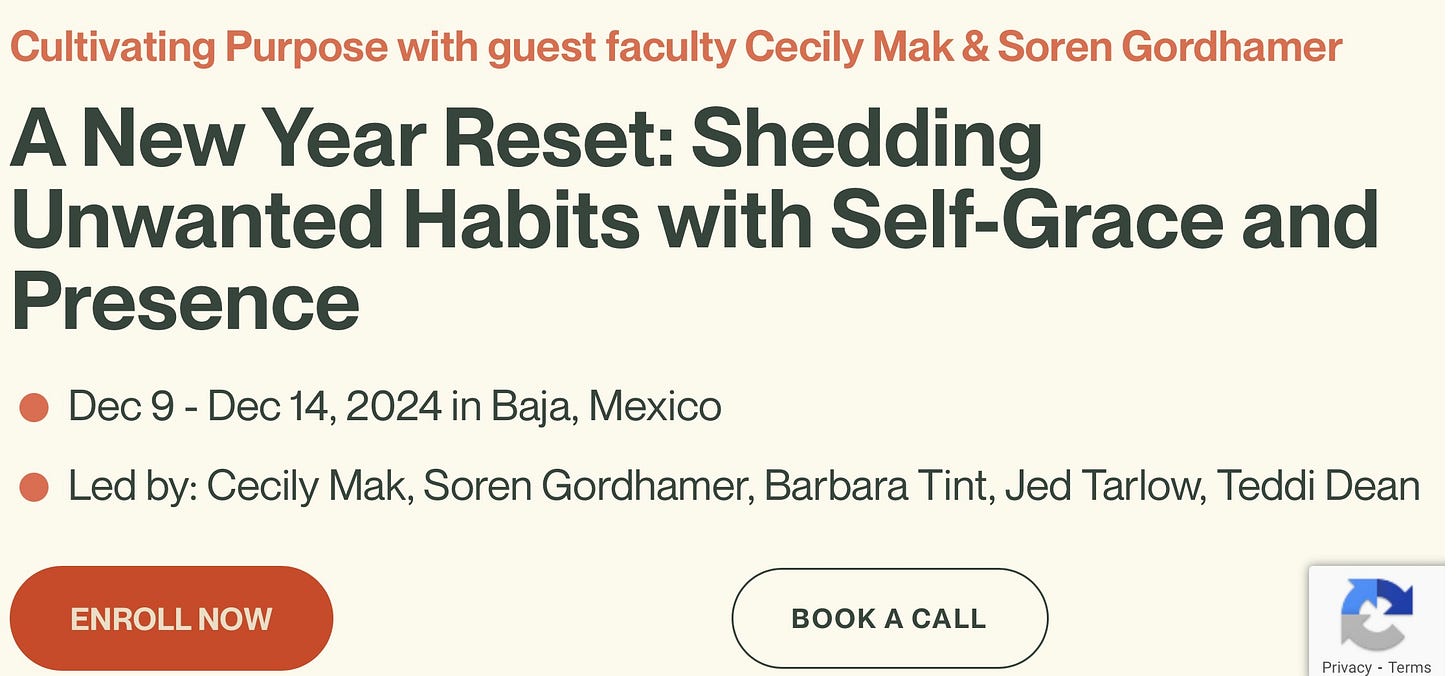You are reading ClearLife, a weekly, sometimes b-weekly, exploration of life without “dimmers” such as escapist drinking, eating, snark, exercise, shopping, sex, work, drugs—even generosity. Prior posts are available here, including a capture of The Eight Awarenesses framework. You can find information about the podcast, events, and more via my website.
Learning how to think?
I spent my early twenties between California, Boulder, and India exploring various identities and career paths. I considered everything from graphic design to real estate, bartending (I know) to academia, natural medicine to talent agent. Truth be told, I was pretty indecisive about most things back then. I can see now, with a good dose of self-grace, that I was just trying to figure it all out.
After a two year stint of modeling post-undergrad, I decided to put myself through law school. It will open doors, teach me how to think, and give me credibility, I recall telling myself.
Decisiveness
On that “learning how to think” part, what you may have heard about law school is true. After three years of rigorous coursework, my mind was trained to spot and mitigate risk, objectively weigh options, and take swift and decisive action. Suddenly—and for the first time in my life—decision making was easy: (1) Get information. (2) Identify and assess options. (3) Make a decision. (4) Go.
Like many young lawyers, I used this approach in the office and in my personal life. In a way, life was easier without all of that pontificating. Over time, it became clear that these skills—often very valuable in the business context—aren’t always a great match for life’s tougher, personal decisions such as:
Whether to launch or leave a career.
Whether to marry or pursue a divorce.
Whether to have chemotherapy.
Which path to go down with a book / film / other creative project.
Whether to move.
We can review risk profiles, assess regretability, weigh advantages and disadvantages—even consult with trusted advisors, but sometimes the implications of decisions are so significant that objective, fact-based thinking doesn’t do it. We are stuck. There is no clear path. This can be maddening.
In my case, when I get stuck, not only does my mind race, but I also feel it in my body—specifically my chest. Sometimes I can actually feel my heart pounding and my temperature rise as I grapple with the evident options.
When this happens, I try to remind myself to slow down. These are opportunities to tune into our intuition or do a “gut check.” And this can take time.
ClearLife and Tuning In
I’ve written extensively about the power of intuition—it’s actually the primary focus of The Third Awareness: My intuition defines my priorities and I pursue a life that reflects them. What we haven’t addressed is all of the ways to create deep space for its signal to be discernible.
Yes, the practices help (all in the above listed link): Moments of Stillness, Meditation, Looking for a Sign, Time in Nature, and so on, but what if we are faced with a serious decision and despite these efforts, we still don’t know what to do?
Do Nothing.
Our family has a nomadic family friend who is also a meditation teacher. When the kids were young, he would occasionally stay with us for a couple of nights or more, amidst his travels. We always loved it when he came, his suitcase nestled in the corner of our living room spilling over with new gadgets from Japan, carefully selected and folded T-shirts, and interesting tools for self-care, wellbeing, and meditation.
Once, during one of his visits, his departure day came after almost a week on our sofa. He explained that something about going to Chicago on that day didn’t feel quite right—something about a shift in his teaching schedule, accommodations, and weather. He asked if he could extend his stay and we were happy to oblige.
Over dinner that evening, he shared his struggle with competing factors about whether to go and when. There were reasons to go, but just as many to delay or cancel it altogether. Feeling unsettled, he paused. "One of my favorite teachings is: When you don't know what to do, do nothing," he said. There was no rush. As our guest, he had the space and time to wait until the right path became clear.
And that he did.
Sure enough, several days passed. More information came in. The trip felt clear, affirmed. And off he went.
We’ve talked about this since then, and I myself use this approach often. When caught in a wave of decisiveness, if we can afford a pause, there is great freedom and power of doing nothing. The path will eventually reveal itself, and clearly.
Through the sacred art of pausing, we develop the capacity to stop hiding, to stop running away from our experience. We begin to trust in our natural intelligence, in our naturally wise heart, in our capacity to open to whatever arises. —Tara Brach
The Invitation
When a decision feels unclear, or too big, or confusing in some way, I try to follow these steps:
Assess whether a pause is possible. Of course some things are time sensitive and we don’t have that luxury, but for many things we can afford to take a beat. If you can manage to delay a decision a bit, take the space and time.
Make the conscious choice to do nothing. Be with the unknown with as much ease as possible. Try to cease all assessment, option weighing, regret mapping, list making and so on. Just be as easeful as possible with the unknown, bringing attention away from the decision. Focus on something else for a while.
Trust that there will be a moment when the choice will be clear. The right path will reveal itself. Know that this could happen upon rising one morning or in some unexpected or ordinary way. When the choice is clear, trust it.
A Cautionary Note
If it is extremely difficult to actually do nothing (I know a thing or two about this one…), it’s possible that activity, decisiveness, compulsive action is itself a dimmer. This happens in the ClearLife realm quite a bit! Getting busy is a great way to feel less and avoid vulnerability, messiness, and the inconvenience that could come from clear knowing and a possible change. The same way that apathy can be a way to disengage and avoid presence, so too can over-action. We all need to find the balance that works for us.
I’d love to about your experience with doing nothing (or too much of something :)
Love.
❤️
Miscellaneous…
THIS IS HAPPENING!
Would love to see some of you there. Space is limited to 28 attendees. You can read more all about it and register here. Scholarships and financial assistance are available.
The kiddo is coming with me this week… In a major gesture to my own work with The Eight Awarenesses, especially trusting intuition to define my priorities and treating time like the precious currency it is… my 13 year old son is accompanying me for some international travels this coming week. They’ll be a bit if sitting around as I tend to a couple of meetings and talks, but I am beside myself with joy that he’ll be with me for this adventure. Work travel is way, way more fun with a kid (this age), right? This feels like a blessing.
Keep ‘em coming… Your emails and messages, noteworthy articles and news stories, suggestions for posts—you name it—are so appreciated. Thank you for sending things along when inspired.







I love this practice, Cecily. Buddhist teacher Gil Fronsdal teaches something similar, along the lines of: "If the only things you can think of to do in a particular situation will make it worse, don't do anything." Even giving myself that instruction feels expansive rather than contractive and opens more space for clear thinking.